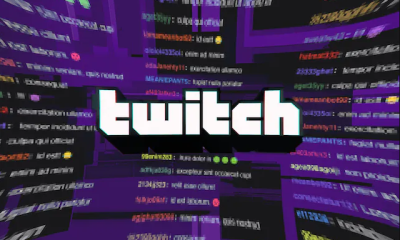Cryptocurrencies
Different applications of blockchain technology through new crypto projects
12 years since Bitcoin was first introduced to the world the concept of blockchain technology is slowly becoming a household name. The immutable, trustless, and transparent public ledger has forever changed the way we track data, and this is not limited to financial applications.
In this article, we will not focus on the investment properties of cryptocurrency. People do not only buy Bitcoin due to its profit potential but also because of its fundamental strength to act as a better form of currency. And this strength is slowly spreading across different sectors and industries.
The post will describe these industries, how blockchain technology is helping to improve them, and what we can expect in the next few years. Let’s delve in.
The Metaverse
Never until now were humans able to create value across the web. This has been one of the biggest roadblocks for the development of early-stage virtual realities. That, however, changed in 2016, when Ethereum was first introduced to the world.
You see, the Ethereum blockchain enables developers to build decentralized applications upon it, which as a result disrupts all the traditional models that have been limiting us. Shortly after its creation, developers created the first-ever Decentralized game with unique characters known as Cryptokitties. The game was a great success, and some virtual cats ended up being sold for an excess of 300 ETH.
However, that was just the beginning. Soon, ambitious entrepreneurs took the concept and applied it to real estate as well. We saw projects like Decentraland and The Sandbox game building virtual worlds and selling the real estate to those who wished to build games upon them. The concept was successful and once again proved that something doesn’t need to be tangible to have value.
In 2020, this concept became even stronger. The trend of non-fungible tokens (NFTs) continued to increase across the world, and we saw a large influx of artists joining platforms like Rarible.com and Niftygateway. The same creators started selling unique digital art tied Ethereum addresses to indicate their originality, finally getting paid what the art is worth. While still early, we expect this trend to expand into all other creative industries, like music, video, and other forms of entertainment.
Supply chain management
Blockchain technology revolutionized another industry as well – that of logistics and supply chain management. Before delving into this, let’s give some context.
Over the past few years, we have seen counterfeit products grow in popularity, with black market sales of luxury goods topping more than $400 billion per year. The number is expected to increase even further in the coming years. This is a massive problem for retailers and brands that wish to sell original products.
Some industry-relevant entrepreneurs, like Sunny Lu of Louis Vuitton, understood early on that blockchain could disrupt this industry as well. By creating VeChain, Lu forever changed the way supply chain management operates. The project enables customers to track the originality and uniqueness of products, while merchants can follow their merch through all the stages of development.
VeChain already has partnerships with the likes of PWC, Amazon, and BMW, while many smaller partners are also able to benefit from its services.
Healthcare
Another great use case for blockchain technology is that of the healthcare industry. Of course, healthcare is a very broad category and one can break it down into many different subgroups. The good news is that most of these subgroups have at least one ambitious project working to provide blockchain solutions that can elevate the effectiveness and efficiency of historical data tracking and medicine distribution.
You can see a list of all healthcare cryptocurrencies and read more about their use cases here.
Education
Finally, the sector that would see the most benefits in the short term is that of education. There are many reasons for that:
- Improves record-keeping – one of the best use cases of blockchain technology is that of record-keeping and tracking. Educational facilities can put diplomas and certificates on the blockchain so that employers can easily verify their authenticity after being listed on an applicant’s CV.
- Efficient processes – Another great solution of blockchain technology is to track the complete educational record of students, making it impossible to “cheat” the system with fraud and credential verification.
- Create a new market for digital assets – Tracking and verifying all sorts of payment details of new and alumni students is also a hurdle nowadays. Blockchain technology can help solve this issue. Aside from that, if the price of cryptocurrencies related to the educational system increase in value, the funds could be used to improve the facilities of these institutions.
And that’s it! You should now have a better overview of some of the different applications of blockchain technology across industries.


















